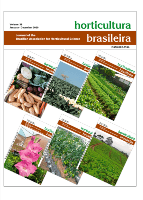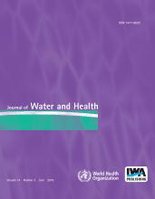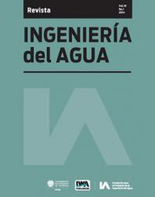
Water Resources and Irrigation Management-WRIM
Scope & Guideline
Empowering Research for Agricultural Sustainability
Introduction
Aims and Scopes
- Water Efficiency and Management:
The journal emphasizes research on optimizing water usage in agriculture, including studies on irrigation systems, water productivity, and strategies to mitigate water scarcity. - Impact of Environmental Stress on Crop Production:
Research that explores the effects of salinity, temperature, and other environmental stresses on crop yield and quality is a core area, highlighting ways to enhance resilience in agricultural practices. - Sustainable Agricultural Practices:
The journal promotes sustainable approaches to farming, including the use of organic waste and innovative nutrient management techniques to improve crop production without compromising environmental integrity. - Groundwater and Surface Water Quality Assessment:
Investigations into the quality of water sources for irrigation, including groundwater and surface water, are crucial, focusing on how water quality influences agricultural productivity. - Decision Support Systems and Policy Development:
The journal seeks to advance methodologies for decision-making in water management, integrating ethical considerations and stakeholder perspectives into sustainable water governance.
Trending and Emerging
- Hydroponic and Innovative Cultivation Techniques:
There is a growing focus on hydroponic systems and other innovative cultivation methods, as evidenced by studies on nutrient management and crop performance in controlled environments. - Climate Change Adaptation Strategies:
Recent papers increasingly address the impacts of climate change on water resources and agricultural practices, emphasizing the need for adaptive strategies to ensure food security under changing environmental conditions. - Ethics and Stakeholder Perspectives in Water Management:
Emerging discussions around the ethical dimensions of water use and the involvement of various stakeholders in decision-making processes reflect a broader understanding of water management as a social and environmental issue. - Integrated Water Resource Management (IWRM) Approaches:
Research is trending towards IWRM frameworks that consider the interconnectedness of water, land, and agricultural systems, aiming for holistic solutions to water scarcity and quality challenges.
Declining or Waning
- Traditional Irrigation Techniques:
Research focusing on conventional irrigation methods appears to be diminishing as emphasis shifts towards innovative technologies and sustainable practices that enhance water efficiency. - General Environmental Impact Assessments:
While still relevant, broad environmental impact assessments related to water use in agriculture are becoming less frequent, as studies increasingly focus on specific stress factors affecting crop production. - Historical Water Management Practices:
There is a noticeable decline in studies examining historical water management practices, potentially due to a growing need for contemporary solutions that address current water scarcity issues.
Similar Journals

Soil and Water Research
Advancing Sustainability Through Soil and Water InsightsSoil and Water Research, an esteemed journal published by the Czech Academy Agricultural Sciences, is dedicated to advancing the fields of Aquatic Science and Soil Science. With a strong commitment to open access since 2006, this journal facilitates the dissemination of high-quality research and fosters global collaboration among researchers, professionals, and students. Operating from the vibrant academic hub of Prague, Czech Republic, it serves as a key resource for those interested in pressing environmental and agricultural challenges. Featuring a robust H-index and ranking in the Q2 category for both Aquatic Science and Soil Science as of 2023, Soil and Water Research occupies a prominent position in Scopus, ensuring that published works reach a wide audience. The journal invites contributions that explore innovative methodologies and provide insights into soil and water management practices, thus playing a critical role in addressing sustainability issues within these interconnected domains. As researchers navigate the complexities of climate change and resource management, Soil and Water Research stands out as a vital tool for informed decision-making and impactful research.

AGRONOMIA MESOAMERICANA
Connecting minds for sustainable agricultural practices.AGRONOMIA MESOAMERICANA is a distinguished open-access journal published by UNIV COSTA RICA, dedicated to advancing knowledge in the fields of agronomy, crop science, food science, and soil science. Since its inception in 1990, the journal has provided a platform for researchers and professionals to disseminate their findings, contributing significantly to the agricultural sciences. With an E-ISSN of 2215-3608, it operates from Costa Rica, specifically from the Centro Investigaciones Agronómicas, situated in San José. Despite its current classification in the Q4 quartile for 2023 in the respective fields, it aims to stimulate academic discourse and inspire innovative solutions to pressing agricultural challenges. The journal attracts a diverse audience and encourages submissions that focus on sustainable practices, food security, and environmental stewardship, making it an essential resource for researchers, professionals, and students alike seeking to enrich their understanding and share crucial insights in the agronomy landscape. Open access ensures that all published research is freely available, fostering collaboration and knowledge exchange worldwide.

APPLIED ENGINEERING IN AGRICULTURE
Transforming Agriculture Through Innovative Engineering Solutions.APPLIED ENGINEERING IN AGRICULTURE is a peer-reviewed journal published by the American Society of Agricultural and Biological Engineers, dedicated to advancing the field of agricultural engineering through the dissemination of high-quality research. With an ISSN of 0883-8542 and an e-ISSN of 1943-7838, this journal has been a key resource since its inception in 1985, serving as a vital platform for scholars and practitioners to share innovative ideas and practical solutions that enhance productivity and sustainability in agricultural practices. The journal is ranked in the Q3 category for Engineering (miscellaneous) as of 2023, and is positioned within the 43rd percentile of the general engineering rankings in Scopus. While not currently an open-access journal, APPLIED ENGINEERING IN AGRICULTURE remains crucial for researchers and professionals looking to explore diverse engineering solutions that address the complexities of modern agriculture, making it an invaluable resource for anyone committed to improving agricultural systems through engineering advancements.

IRRIGATION SCIENCE
Exploring cutting-edge research in water conservation and management.IRRIGATION SCIENCE, published by Springer, is a leading academic journal dedicated to advancing the field of irrigation and water management, crucial for sustainable agricultural practices and environmental conservation. With an impressive ISSN of 0342-7188 and an E-ISSN of 1432-1319, this journal has maintained its scholarly excellence since its inception in 1978 and continues to thrive as it converges towards 2024. IRRIGATION SCIENCE holds esteemed rankings within the Q1 category for Agronomy and Crop Science and Q2 rankings for both Soil Science and Water Science and Technology as of 2023, reflecting its significant impact in related disciplines. With Scopus rankings placing it in the top percentiles of its field, the journal is an essential resource for researchers, professionals, and students looking to stay informed on the latest developments and innovative practices in irrigation science. Although it does not offer open access, the journal's rigorous peer-review process ensures high-quality research dissemination, making it an invaluable tool for driving progress in agricultural water management.

Journal of Applied Water Engineering and Research
Exploring the Future of Water Resource ManagementJournal of Applied Water Engineering and Research is a dynamic platform dedicated to the advancement of knowledge in the field of water science and technology. Published by Taylor & Francis Ltd, this journal aims to bridge the gap between theoretical research and practical applications in water engineering, providing a crucial resource for researchers, practitioners, and policymakers. With an ISSN of 2324-9676 and an impressive ranking in the Q3 category for Water Science and Technology, it occupies a distinctive position within the scholarly community. The journal covers a wide spectrum of topics, including innovative water management strategies, sustainable practices, and the integration of technology in water resource management, thus contributing significantly to the discourse surrounding environmental sustainability. With publication years converging from 2013 to 2024, the Journal of Applied Water Engineering and Research continues to foster impactful research, enhancing our understanding and management of vital water resources.

Horticultura Brasileira
Bridging research and practice in plant and soil sciences.Horticultura Brasileira is a leading open access journal published by the ASSOC BRASILEIRA HORTICULTURA, dedicated to advancing research in the fields of horticulture, plant science, and soil science. With an ISSN of 0102-0536 and an E-ISSN of 1806-9991, this journal has been an integral part of the scientific community since its inception, embracing open access practices since 1999. Based in Brazil, it provides a platform for researchers to disseminate their findings and contribute to the growing body of knowledge in horticultural science and related disciplines. Despite its current Q3 ranking in multiple categories such as Horticulture, Plant Science, and Soil Science within Scopus, the journal continues to attract a diverse array of scholarly articles, fostering innovation and collaboration among scientists. The journal aims to bridge the gap between research and practical applications, making it an invaluable resource for students, professionals, and academics alike who are looking to expand their understanding and impact in the field.

JOURNAL OF WATER AND HEALTH
Exploring the intersection of water science and public health.The JOURNAL OF WATER AND HEALTH, published by IWA PUBLISHING, serves as a leading platform for disseminating innovative research related to water quality, sanitation, and public health. With its ISSN 1477-8920 and E-ISSN 1996-7829, this esteemed journal significantly contributes to the fields of Public Health, Environmental Science, and Microbiology, as evidenced by its robust rankings in several quartiles, including Q2 in Public Health and Water Science and Technology in 2023. This periodical enjoys a convergence of years from 2003 to 2024, underscoring its continuous relevance in addressing critical global issues such as water safety and infectious diseases. Although not an open-access journal, the insights and findings presented are pivotal for researchers, professionals, and students eager to contribute to the sustainable management of water resources and health improvements worldwide.

Water Research X
Pioneering research for a water-secure future.Water Research X is a prestigious journal published by ELSEVIER, focusing on the dynamic fields of water science and technology, pollution, ecological modeling, and waste management. Since its inception in 2018, this Open Access journal has become a cornerstone resource for researchers and professionals dedicated to advancing our understanding and management of water resources. Based in the United Kingdom, Water Research X holds an impressive ranking within the Scopus metrics, positioned in the Q1 category across multiple relevant disciplines, including Environmental Science, with a notable rank of 10/261 in Water Science and Technology and 3/41 in Ecological Modeling. This reflects its commitment to disseminating high-quality research that informs policy, supports sustainable practices, and fosters innovation in water management.

Hydrology
Advancing water science for a sustainable future.Hydrology, published by MDPI, is a prominent open-access journal dedicated to advancing the field of hydrological science. Since its establishment in 2014, the journal has garnered a reputation for excellence, reflected in its classification within the Q2 quartile for 2023 across multiple categories including Earth-Surface Processes, Oceanography, Water Science and Technology, and Waste Management and Disposal. Based in Switzerland, Hydrology provides a vital platform for scholars and practitioners to disseminate research findings, promote innovative methodologies, and foster discussions on current trends affecting water resources and management globally. The journal is easily accessible online and aims to significantly contribute to the understanding of hydrological processes, offering insights that are pivotal for addressing contemporary environmental challenges. With Scopus rankings showcasing its growing influence, Hydrology is a crucial resource for researchers, students, and professionals committed to water science and sustainable practices.

Ingenieria del Agua
Exploring the Frontiers of Water Resource EngineeringIngenieria del Agua, published by Universitat Politècnica de València, Editorial UPV, is a prominent open-access journal dedicated to the field of water engineering and management. With its ISSN 1134-2196 and E-ISSN 1886-4996, this journal has been facilitating the dissemination of critical research and innovative practices in water resources since 1994. With a commitment to providing unrestricted access to high-quality research, Ingenieria del Agua aims to serve as a pivotal platform for researchers, professionals, and students alike. Focused on the intersection of hydrology, environmental engineering, and sustainability, the journal encourages submissions that address contemporary challenges in water resource management, promoting advancements that are vital for both ecological conservation and societal needs. By fostering a collaborative academic environment, it plays an essential role in shaping the future of water engineering.